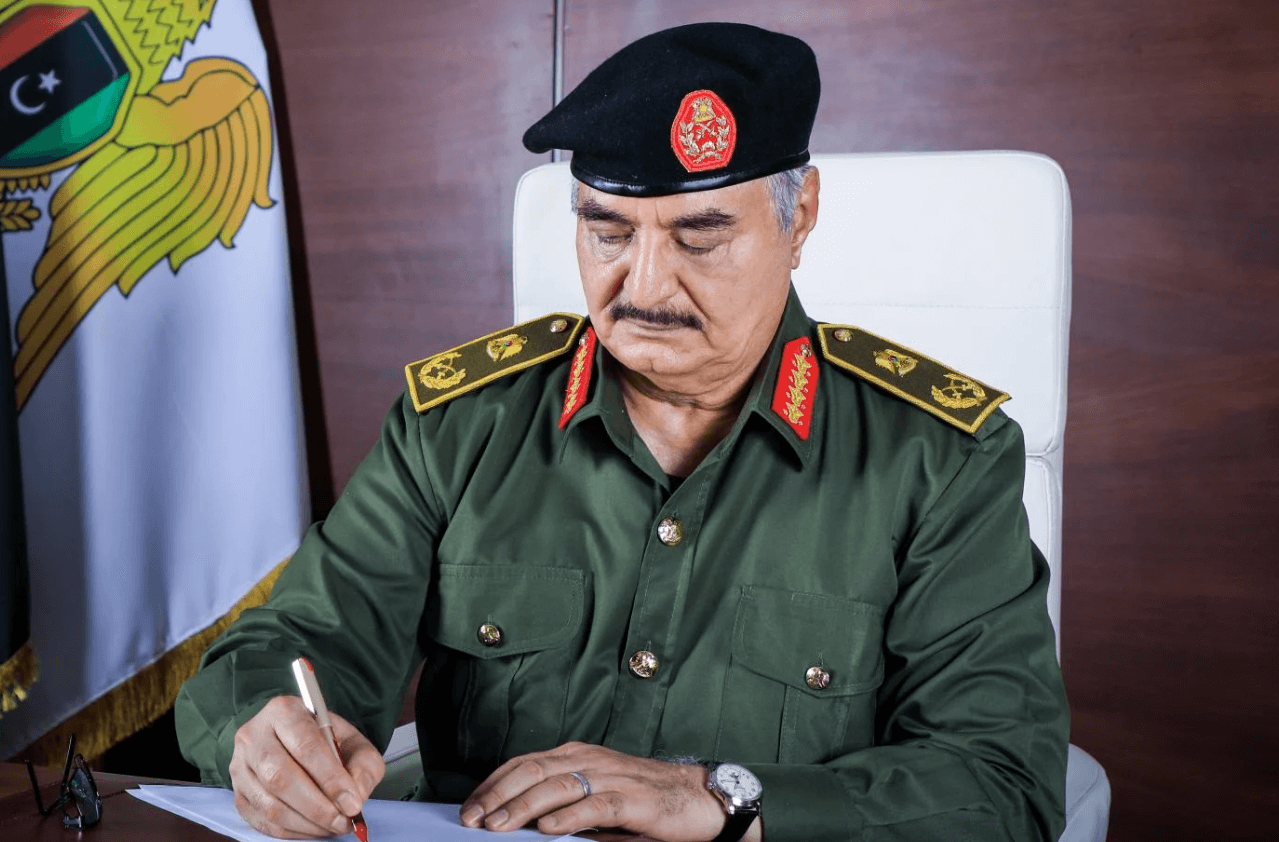Loyalists of Libyan warlord Khalifa Haftar announced on Saturday their decision to suspend their participation in a military commission seen as crucial in efforts to bring peace to the conflict-ridden country.
The move appears to be connected to disagreements between the country’s Tobruk-based government, led by the House of Representatives (HoR), and the United Nations (UN)-backed Government of National Unity (GNU) in Tripoli. In February, the HoR selected Fathi Bashagha as the country’s Prime Minister (PM) and later voted to give confidence to Bashaga’s Government of National Stability (GNS).
It is not clear yet if #Haftar will act on the recommendations from the LNA's 5 representatives in the 5+5JMC. It would be a huge mistake on their part if they go ahead and act on these recommendations & would mark the end of the 2020 ceasefire agreement. #Libya
— Mohamed Eljarh (@Eljarh) April 10, 2022
The move was rejected by incumbent PM Abdul Hamid Dbeibah, who said that he will not hand over power unless an election was held. Dbeibah was appointed as interim PM as part of a UN-led effort in February 2021 by replacing the internationally recognised Government of National Accord and the rival LNA with the GNU to oversee efforts to hold elections in December of the same year.
However, the elections did not happen and were indefinitely postponed due to political differences over the candidature of Saif al-Islam Gaddafi, the son of deceased dictator Muammar Gaddafi. In this respect, Bashaga is seen as a candidate capable of replacing Dbeibah and has been backed by several eastern factions, including Haftar’s Libyan National Army (LNA).
2- It is important to read today's statement in its correct context. The 5 LNA members of the JMC made recommendations to #Haftar for measures to take in response to @Dabaibahamid's provocative actions and violations of the 2020 ceasefire agreement. #Libya
— Mohamed Eljarh (@Eljarh) April 9, 2022
Therefore, the move by LNA representatives to quit the military commission comes as no surprise. In fact, Haftar’s representatives said that the main reason they quit was because of the commission's close ties with Dbeibah’s government. They demanded that the commission suspend all ties with the GNU as a condition for returning.
Furthermore, the LNA representatives have threatened to shut oilfields in the east and close the roads linking eastern and western Libya. These moves could cut off vital oil exports, which the Tripoli government depends on as a critical source of revenue, and end the GNU’s access to the east.
The representatives also accused Dbeibah of ignoring the Haftar-led LNA’s role in bringing stability to the country. They have argued that the LNA has guarded oil fields in the east and prevented terrorism from taking root in the region.
After failing to take over power from the Government of National Unity, the military committee of warlord Haftar in 5+5 military talks demands closure of oil fields and ports, closure of the coastal road and suspension of flights between the east and the west of the country. pic.twitter.com/44F2Ckn45O
— The Libya Observer (@Lyobserver) April 9, 2022
Additionally, they have accused the GNU of not paying salaries to LNA soldiers despite the fact that the LNA was formally recognised as part of the state following the establishment of the Dbeibah-led government. Haftar has previously demanded that the GNU pay him his dues.
The military body, formally known as the Joint Military Commission (JMC), was established in January 2020 following the Berlin Conference, which aimed to end the Libyan civil war. The JMC was set up in a ‘5+5 format’ and included five representatives from the LNA and five from Tripoli and western Libya. The JMC was crucial in reaching the October 23 ceasefire that ended the war between the LNA and the GNA.
While the ceasefire still holds to this day, the latest event threatens to push the war-torn country into further political turmoil.
Following the death of Muammar Gaddafi in 2011, Libya descended into a state of anarchy, with rival armed factions violently competing for control of the country. The violence initially led to an eight-month-long war in 2011 between Gaddafi loyalists and rebel groups that resulted in a comprehensive victory for anti-Gaddafi forces. Three years later, rivalries among the rebels led to another civil war fought over six years. Both wars have killed and displaced thousands.

